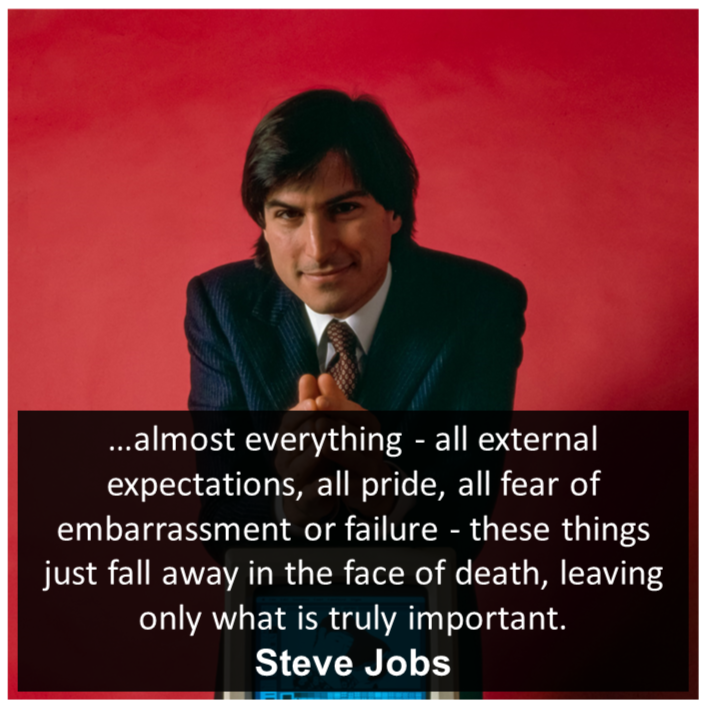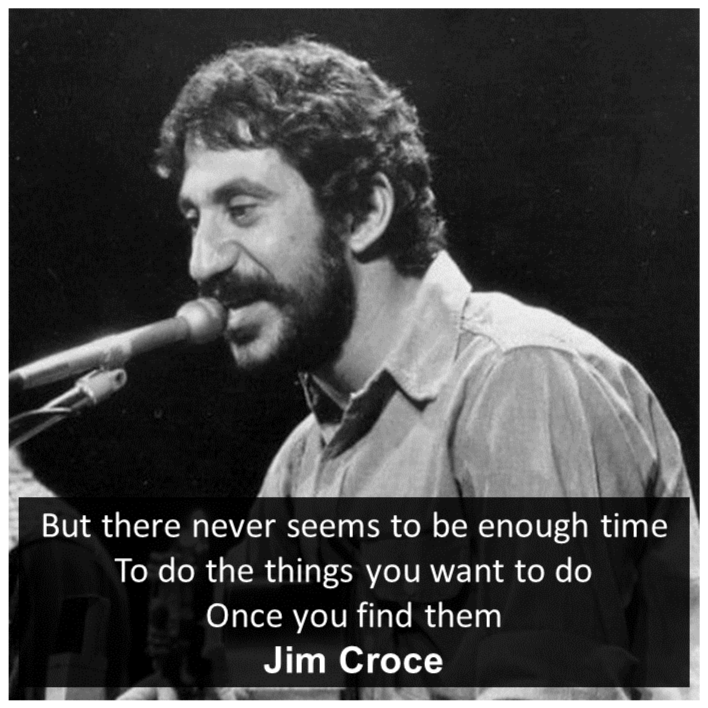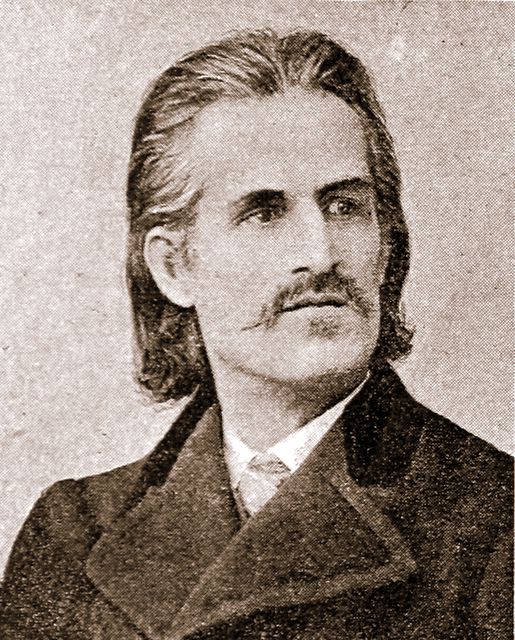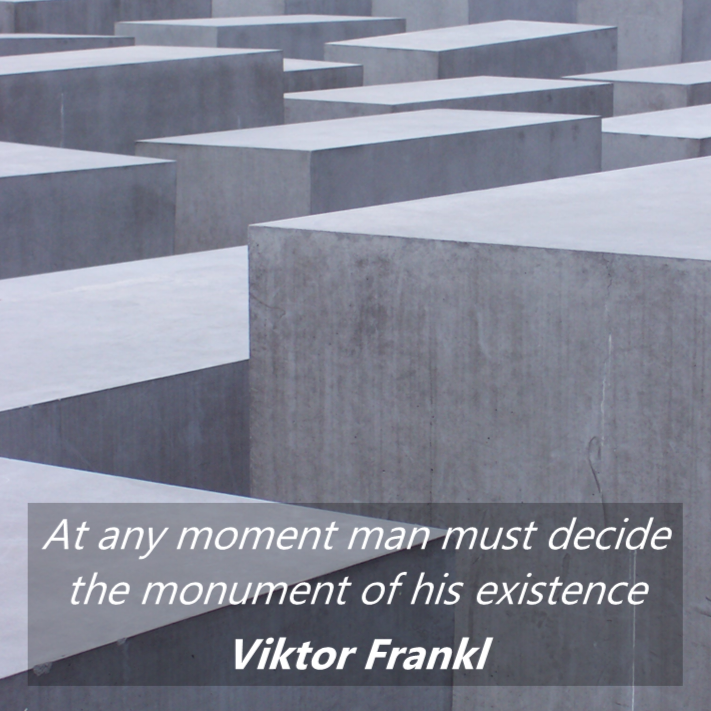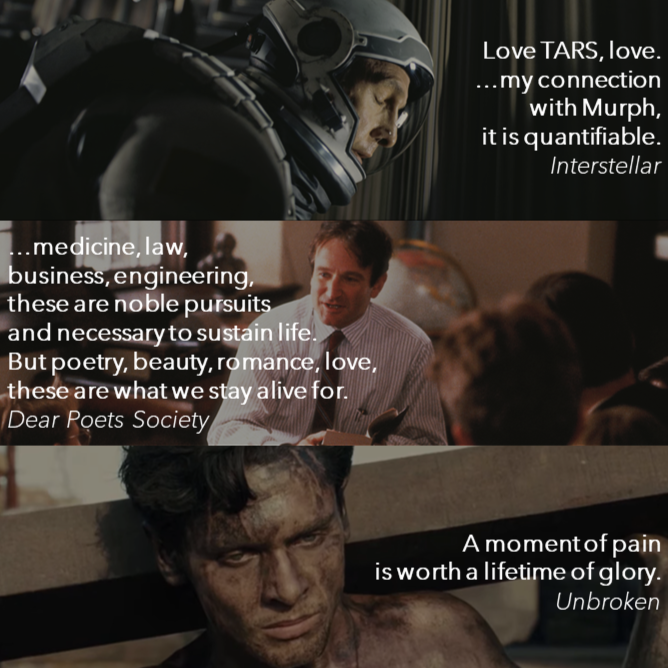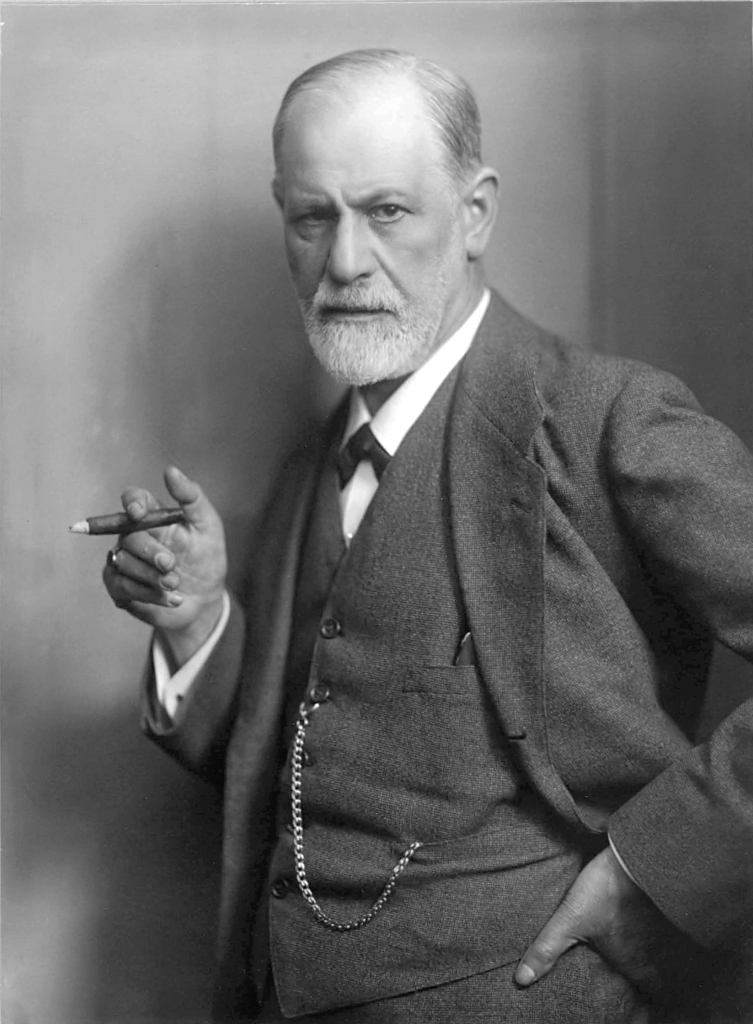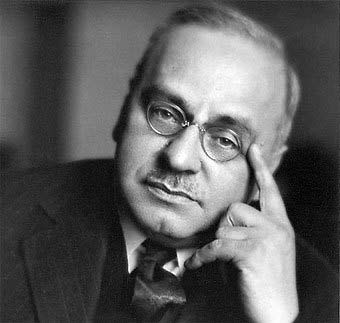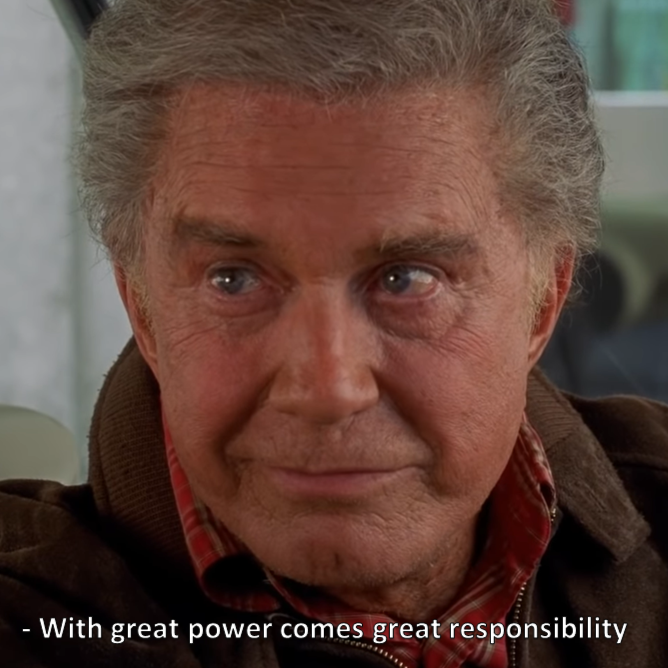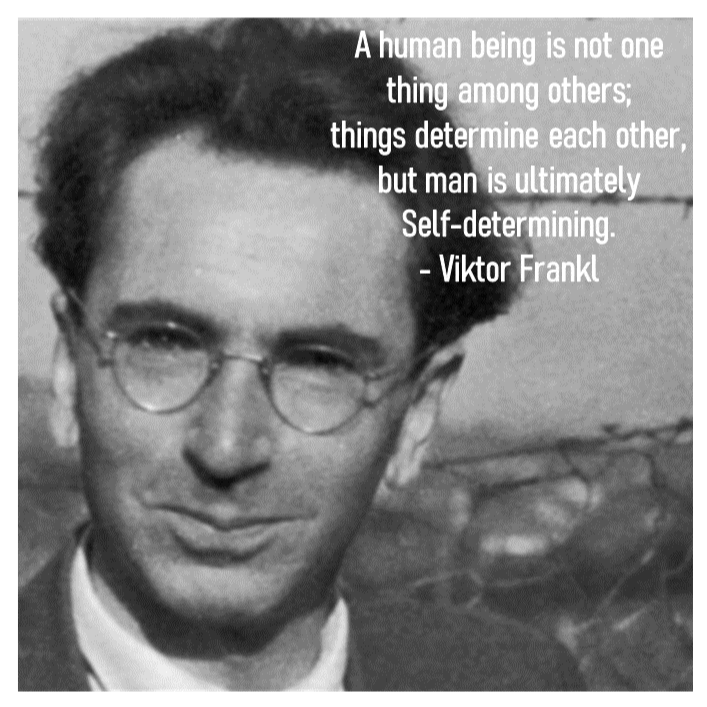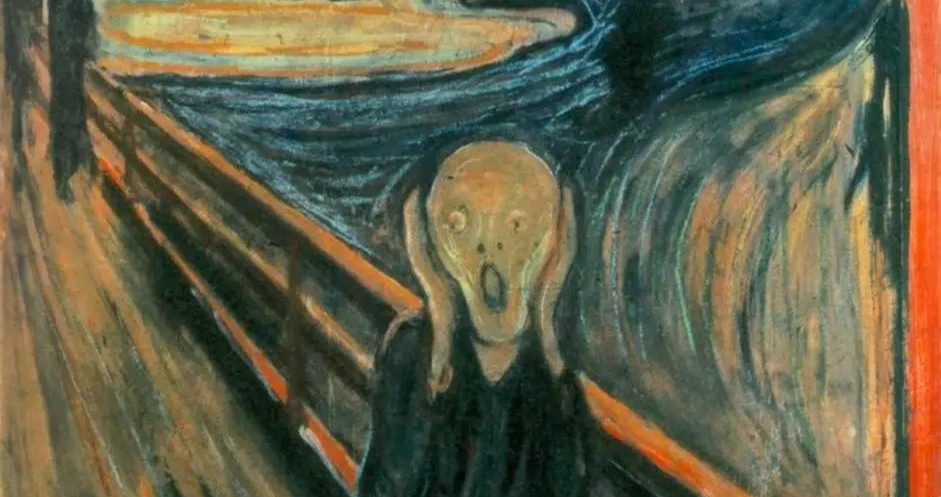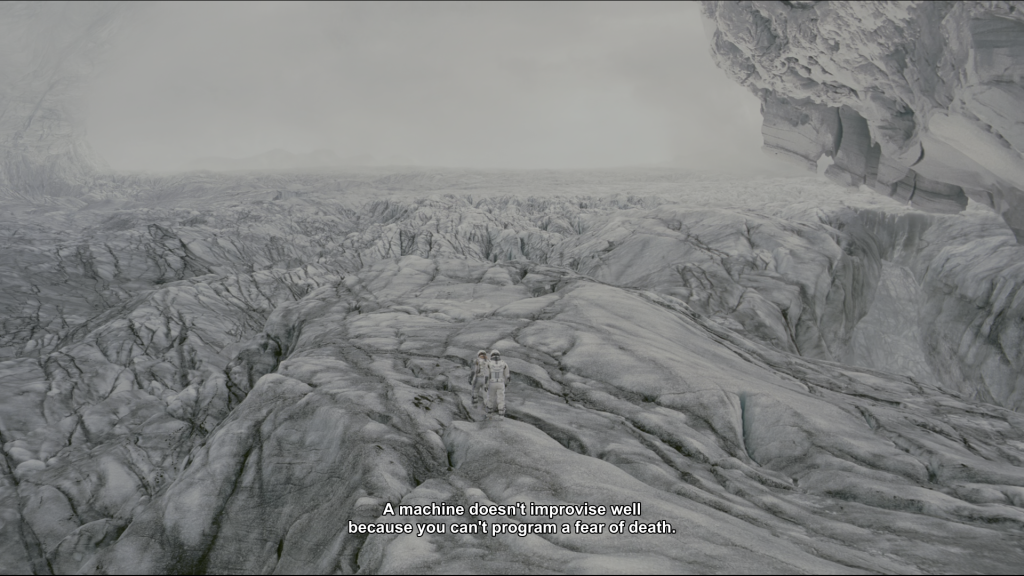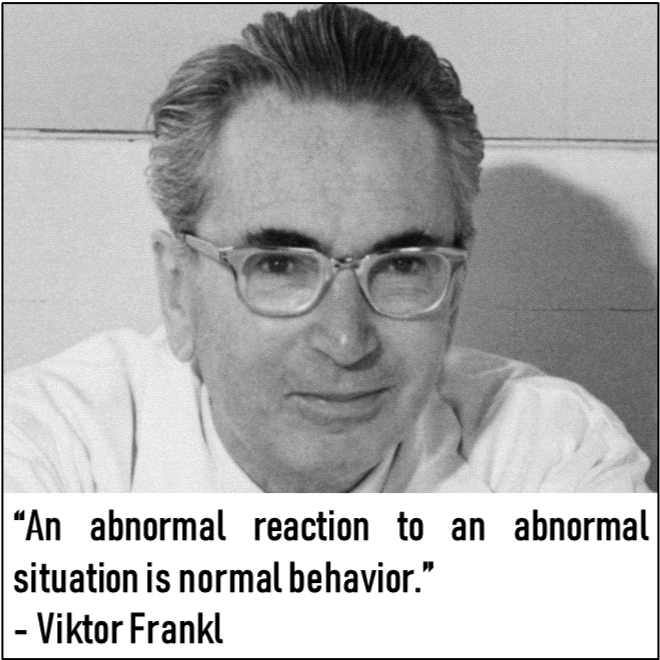Abraham Maslow’s ‘Hierarchy of Needs’ for The Modern World
Psychology ~ Study of mental!?!
A big part of psychology is always associated with the mental disorders – a negative aspect of human psyche. It is a common (mis)conception that students of psychology largely associate themselves with the studies and treatments of such mental people. Maybe it is our human tendency (a defensive tendency) to get immediately attracted to negative aspects immediately which creates such conception about psychology. This is not limited to only psychology; it is applicable to everything we have initial opinions about. But this is not true, we are seeing only a half part of the psychology. The other half and the positive part – is more helpful to live a better life.
Talking about good and bad part of human psyche – where would you put a selfish person? For the sake of classification, a selfish person is the one who prioritizes himself/herself first when it comes to anything. He/ she would think of themselves first, for their own benefit first to make the best out of the circumstances. Isn’t that bad?
How could it be bad if survival is the only option in front of such people? Then the roles reverse immediately. When it comes down to survival of a person every virtue falls down. If a person did something for their own betterment and jeopardized others in the process, will they be called selfish? Now the answer to this question becomes subjective and quite tricky. Were the others evil? If yes, then being selfish for self-benefit by belittling the evil others makes you a hero. If the others were good then being selfish makes you the evil one. So, is selfishness subjective?
We will find the answers to this question soon in upcoming parts.
Have you ever felt that feeling of void after achieving something great you’ve been striving for? Have you felt that emotion of not being repaid for the many good you did for others? Have you felt jealous for that simpleton who while being less competent than you got more recognition? Have you felt bad for people who devoted all their life for the betterment of society got disrespected by the society? Do you think that the modern definition of love is closer to formal transaction of things, physical acts and emotions?
Do our answers to all the questions above in a “Yes” mean that we are bad humans?
This is exactly the part where the positive aspect of psychology plays a crucial role.
Humanistic Psychology – What Makes Someone “A Whole Human”?
The humanistic psychology popularized by the ideas of an American Psychologist Abraham Maslow is also coined as the third force in psychology. (After Freud’s Psychoanalysis and Skinner’s Behaviorism)
“It is as if Sigmund Freud supplied us the sick half of psychology and now, we must fill is out with healthy half.”
-Abraham Maslow
So, simply put, Maslow asked opposite question about human psyche. What if things go right? What happens when a human mind is completely healthy? What changes can be seen in a healthy human psyche? What are the characteristics of “a whole human”?
The ideas of humanistic psychology hence bring one spiritual aspect in the understanding of the human psyche. Maslow’s ideas from the Theory of Motivation show us that psychology is also about what good is in humans and how everyone can achieve it.
Self-Actualization – The Classical View on Being the Best Version of You
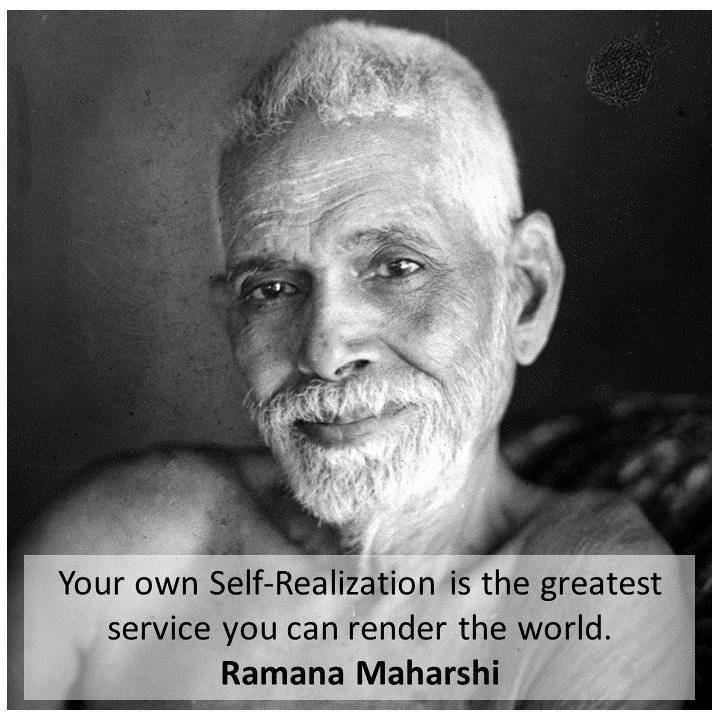
In 1938 Abraham Maslow spent six weeks with Siksika Blackfoot, the first nation (Indigenous people) in Alberta, Canada. Maslow was trying to understand the social hierarchy and dominance within these people and surprisingly he found something totally different. Siksika people ever fought for dominance or power, the definition of wealth for Siksika was sharing – the more you share the wealthier you are, children were treated same as the adults were – they had chance to put their own opinion in front of others, Siksika people were highly cooperative. Instead of a single dominant person forcing others for power, the Siksika Blackfoot society left no one behind. Even the people who committed wrong work had option to lose that attitude and join back. It was like the Siksika were highly aware of how one should behave for the betterment of everyone without compromising the personal well-being. Maslow realized that this is the highest form of being a human being.
Maslow understood that if certain basic criterion, basic needs are fulfilled for every human being, then they can immediately strive for self-betterment and also for the betterment of society. They will not exploit society for their personal betterment. Such person would be a person who has achieved self-realization where he/ she knows what is good for him/ her and how they can benefit others in the process.
So, Maslow’s Theory of Motivation talks about achieving human potential to it’s fullest. How we can bring about the best of ourselves which will satisfy us and will also benefit others around us thereby uplifting the whole society. This theory of motivation struck hard against the individualistic ideas which were strong in capitalist America.
The (Controversial) Pyramid
We all would have seen the famous pyramid of needs in certain forms somewhere. This pyramid is known to represent Maslow’s Hierarchy of Needs. Although the concept of hierarchy of needs is originated from Abraham Maslow, the pyramid was never drawn by him. A consulting psychologist Charles McDermid came up with this pyramid to oversimplify Maslow’s ideas and this is where the core of Theory of Motivation was lost.
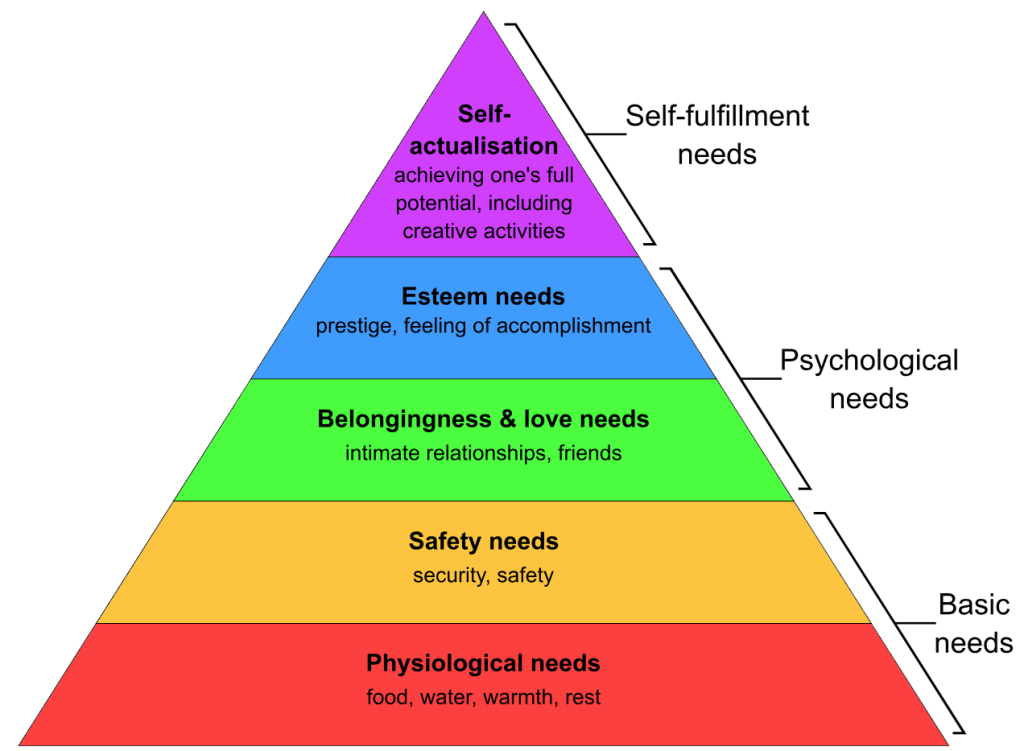
Theory of Motivation and Self-Actualization
According to this theory, humans need an integrated hierarchy where basic survival needs must be satisfied to realize their full potential – to become a self-actualized being.
Theory of motivation deals with what motivates people to achieve certain goal or expected outcome. The most primary theory here is Maslow’s hierarchy of Needs.
Maslow attributed 5 hierarchies for the any person to achieve their full potential:
- Physiological needs – Things required for survival like air, water, food, clothing, and shelter
- Safety needs – personal protection from surrounding hostile conditions, a safe society, secure job/ income, health
- Belonging needs – people who appreciate your presence in their lives, love, friendship, companionship, sense of connection/ belonging
- Esteem needs – respect, loyalty, status, recognition
- Self-actualization – the ability to reach the highest potential
Before moving on with the discussion with these hierarchy it is very important that Maslow never intended these to be linear. The mistranslation of the concept of hierarchy into pyramid lost the whole basics of Maslow’s theory of motivation. Maslow always clarified that these are not sequential.
Maslow’s classified the first four needs namely physiological, safety, belonging, and esteem as the existential motivators. These are the necessities for a person to exist in this world and are completely dependent upon external factors.
The last need for self-actualization is completely intrinsic motivator. Unless and until you feel that drive to understand the purpose of you your being, you won’t reach the stage of self-realization. The person who has satisfied all first four but not the self-actualization will feel directionless even after achieving what he/ she desired. That is exactly why doing things to prove your worth to the world mostly ends in existential confusion, such people question the void which is created after achieving everything they wanted.
That is why inner motivation is important for bringing out the best of you. So, the last need namely Self-actualization is attributed as the intrinsic motivator. This intrinsic urge will drive the person to make the sense of his/ her conditions improve further.
In this further improvement the person achieves self-transcendence. This is the purest form of the happiness. Spirituality calls it the enlightenment.
The Characteristics of Self-Actualizers
It is very important to reiterate that Maslow never intended the hierarchy of needs to be linear and always clarified that you can work of these needs simultaneously. It is not like leveling up in a game one by one. The more you satisfy lower needs, the more you are concerned with the higher needs.
Maslow’s studied such people who have achieved self-realization and found some special common traits. Some of them are listed below:
- They have high level humor – Low level humor is when you belittle others to create laughter. The self-actualizers will make fun of themselves to create this laughter.
- Self-realizers have high sense of reality – Self realizers exhibit a healthy self-esteem. A person with toxic self-esteem will feel jealous for other people’s success. They feel entitled as they were the worthier than others. But the self-actualizers appreciate other people’s success and befriend them to learn the ways to succeed.
- Continuous appreciation – Self-realizers are able to find joy in even the routine tasks, mundane activities. Even though they are excited for something new and challenging they equally value the mundane-ness of the events in life. It is because they carry highest sense of gratitude for everything.
- Problem centered – Self-actualizers understand that whatever mission they have whatever purpose they have to fulfill must always lie beyond themselves and consider the big picture and long-term vision. They are aware that once the goal is achieved, they will get exposed to that existential confusion, once you have higher and wider sense of goal it is very rare that you will end up in existential angst. These types of people are not building an empire to become billionaire, they are on a mission to contribute to the world. Most importantly this urge to contribute to the society is not to make themselves feel worthy, it is because they understand that it is what the world desperately needs. Thus, self-actualizers select their goals in such ways so that they strengthen the personal skills and contribute to the betterment of the society simultaneously.
- Self-realizers enjoy privacy – Solitude resonates more with such people than loneliness.
- Self-realizers demonstrate these values: Wholeness, perfection, completion, justice, effortlessness, aliveness, richness, simplicity, beauty, self-sufficiency, goodness, uniqueness, order, playfulness, truth
- Self-realizers are accepting towards oneself and others – they know that a perfect human is not the one without flaws. They understand that imperfections, sadness, grief, jealousy are also important aspect of being a human and thus try to uplift others going through same conditions instead of belittling them.
- Self-actualizers are more spontaneous and strive to become more natural
- Self-actualizers intensely look out for autonomy. It’s like micromanaging will kill their motivation to do the task.
- Self-actualizers have more profound relationships. The relationships are not transactional.
- Self-actualizers have high sense of Gemeinschaftsgefühl – meaning heightened sense of being connected to humanity.
- Self-actualizers always strive to create win-win situations. That is exactly what helps them to find the goals which will benefit them personally and also the society on grand scale.
- Self-actualizers have peak experiences. Self-actualizers are not always happy (otherwise one would surely attribute such people mental!) Instead of remaining happy with everything irrespective of is valence – intensity, self-actualizers have these small moments which make them appreciate their purpose on even higher level. They are not always drenched in the rains of happiness instead a small shower of joy elevates their sense of purposeful existence.
After going through such detailed characteristics explained by Maslow, it is tempting to ask one question. Do Self-actualizers settle for what they are given?
Self-actualization is a journey
What majorly got lost in translation due to the creation of this controversial pyramid of hierarchy of needs was Maslow’s attribution to continuous improvement in Self-actualizers.
“It is not a state of being but a process, It’s a direction, not destination. This process won’t always bring the feelings of happiness, contentment, and bliss, and it may even sometimes cause pain and heartache. It’s not for the “faint-hearted”. It requires continually stretching outside your comfort zone. It takes a lot of courage to be the best version of yourself.”
This is the part where the theory of motivation truly becomes humanistic. That is exactly what I love about self-actualization. It is not creating a paradise free from suffering, rather it accepts the presence of negative ideas of humanity at the same level as positive ideas. That is what makes us a complete human. It is sad that in general understanding we miss this part of the theory of motivation.
Maslow’s theory of motivation for the modern world
Scott Barry Kaufman – an American psychologist conducted an experiment to fit Maslow’s theory of motivation which is more relevant in this modern world and also doesn’t mistranslate the original theory during oversimplification. I would say it is not oversimplification of the theory of motivation rather it augments the same theory to remain more relevant in modern times.
Scott Kaufman in his famous paper discusses that the as Abraham Maslow’s ideas go, the lack of satisfaction motivates people to fill that existential i.e., external, and emotional i.e., intrinsic deficiency. This deficiency is primarily about physical existence and then about mental/ emotional existence. It can also be deficient in both aspects (external and internal simultaneously). The people who lack motivation are also very defensive when they feel danger to their basic needs – survival needs.
Scott explains that motivated people are driven more by exploration, creativity and love not for themselves but also for the humankind.
The Cybernetic Big Five Theory
Scott Kaufman bridged the concepts of cybernetic big five theory with the characteristics of self-actualized human beings as explained by Abraham Maslow through an experiment consisting of a psychrometric test. (A psychrometric test is a questionnaire to assess intelligence, abilities, potential and personality.)
The big five theory of cybernetics identifies five factors which helps to define the person’s overall personality. Cybernetics here indicates the study of systems which work with a feedback loop. After all motivation is a type of feedback loop. Any mechanism which changes its response based on the outcome can be studied under cybernetics. So, the cybernetic system we are interested here are human beings. There are five factors which indicate the major habits – traits of the person. The varying contribution from each attribute can help us to understand what motivates, influences the given person and how his/ her life can be improved.
Following are the big five:
- Openness to experiences – as the words themselves explains – it’s the way – the trait in which one accepts or molds/ changes to the new experiences. The more open one is to experiences the less they are susceptible to mental disorder
- Conscientiousness – it is the ability to care, to take things/ consequences seriously, being diligent. More conscientious a person is more he/ she is reliable; extremes would be attribute to workaholics, perfectionists.
- Extraversion/ Extroversion – is related to how a person draws energy to exist. Introverts feel energetic in solitude whereas extroverts seek company to feel energetic. This is inspired from Carl Jung’s ideas.
- Agreeableness – it measures how considerate you are. People with low agreeableness are selfish, people with high agreeableness are kinder, sympathetic.
- Neuroticism – is related to how one handles negative emotions and stress. More neurotic a person more negatively they behave.
This theory is also commonly known as the OCEAN theory. But, why did we try to understand the cybernetic big five theory? What motivates people is immediately related to how people behave and what are their “traits”; So, understanding the OCEAN aspects of the personality creates a model where you can understand what motivates them.
The Metatraits – Bridging the Classical and Modern Theory of Motivation
Scott Kaufman linked the big five facets of human personality to Maslow’s theory of motivation through the bridge of Metatraits.
The five facets of human psyche – the five traits namely Openness to experiences, Conscientiousness, Extraversion, Agreeableness, and Neuroticism can be grouped into two major categories. One is Stability and the another is Plasticity.
Stability is defined through the contributions from traits of Neuroticism, Agreeableness, and Conscientiousness.
Plasticity is defined through the contributions from the traits of Openness to experiences and Extraversion.
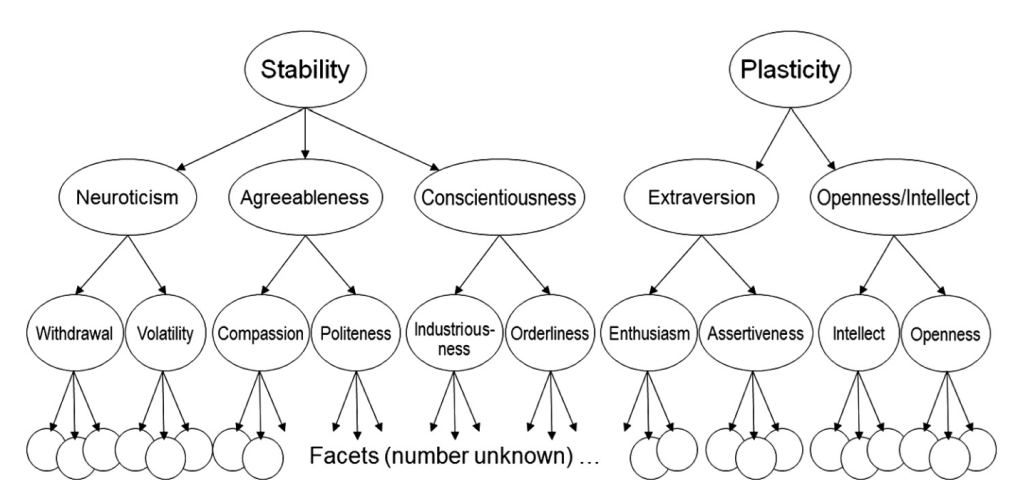
(Source: Cybernetic Big Five Theory, Colin G. DeYoung, 2014, Journal of Research in Personality)
Now, the magic starts happening.
It’s Not A Pyramid, Rather It’s A Sail Boat
Remember that the theory of motivation had two aspects. One is the security, safety and the another one is sense of existence, meaning.
Scott Kaufman through his experiment clarified almost all aspects of Maslow’s theory of motivation. Unlike the popular mistranslated pyramidal structure of hierarchy of needs, Scott smartly utilized the fundamental idea of simultaneity of all needs into his new model. According to Scott Kaufmanns model the hierarchy of need is best represented by the Sail Boat.
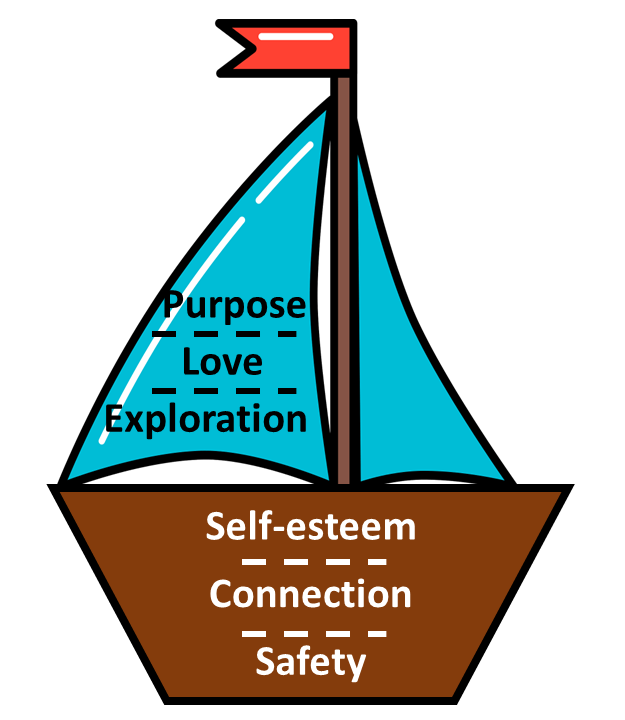
It is very wonderful to appreciate what this Sail Boat model communicates. Its beauty is that is brings the lost ideas from the classical theory of motivation into limelight and at the same time it removes that false linearity from the hierarchy. The word ‘hierarchy’ reflects that interdependence and complementary nature of the needs. The more you satisfy the lower needs, the more you will try to fulfill the higher need.
Scott presents that we are never leveling up from one need to higher one, rather we are trying to fulfill every type of need to certain extent simultaneously. Once we fill like certain need is fulfilled to a safer extent, we can fulfill other multiple need simultaneously.
We are continuously changing our needs based on the experiences we have while fulfilling other needs. Once you achieve certain goal in your life you may feel the need to upgrade you living standards, social status. If you get one life changing spiritual experience you may feel to downgrade your living standards because you feel that this is materialistic obsession.
Scotts Sail Boat model thus can be represented as follows:
The Boat is the security aspect necessary for the survival of a person. It is both physiological and psychological. Safety, Connection and Self-esteem create the boat; once you fulfill these aspects your life will be secured, your physical existence is guaranteed but this will not fill the spiritual existential void, the urge for purpose and meaning in you. You will have to attach a sail of being open to uncertainty, daring to love, daring to find the purpose which will drive that boat into the “OCEAN” of the life. (Look what I did their, actually this is how Scott explains it, you get it!)
Having a boat with holes – the lack of safety, connections, and self esteem will surely jeopardize your materialistic existence. After that having only a boat – fulfillment of safety, connections and self-esteem will give you proper survival. But only survival will instantly demotivate you to even live. Its like a boat which has taken halt, has no purpose and may collapse when a big wave collapses. Basic fulfillment of survival need does not guaranty long term sustenance, any big challenge in life, any negative event will tear down this boat of existence into pieces. You must appreciate that the boat here indicates the metatrait of stability which is supposed to the rigid trait of the personality, rigid int terms of the fundamental support to the whole being.
In order to handle the challenges, the big collapsing waves one need to explore the OCEAN, the challenges for that the motivation will be drawn from the openness to new experiences, learnability, curiosity. This learnability, urge for growth is attributed to the sails of the boat. The sails will ensure that you will move faster when you sense collapsing waves, sails will ensure that your boat will reach the destinations you want, sails will ensure that you have the goal, the purpose, the meaning to your existence. Thus, the sails represent the metatrait of Plasticity.
You must understand that Stability metatrait is how you fulfill your deficiencies in the fundamental needs for existence whereas Plasticity metatrait is about how you make sense of what existence you have established.
How strongly you will live is defined by stability, it is about how you protect your goals, its is about how you handle your impulses, how you strategize and understand the events to remain stable.
How purposeful, focused you will remain will be defined by plasticity. What new goals you create, how you learn new things to achieve these goals, hoe you strategize you r actions to demonstrate understanding, create meaning is what plasticity is.
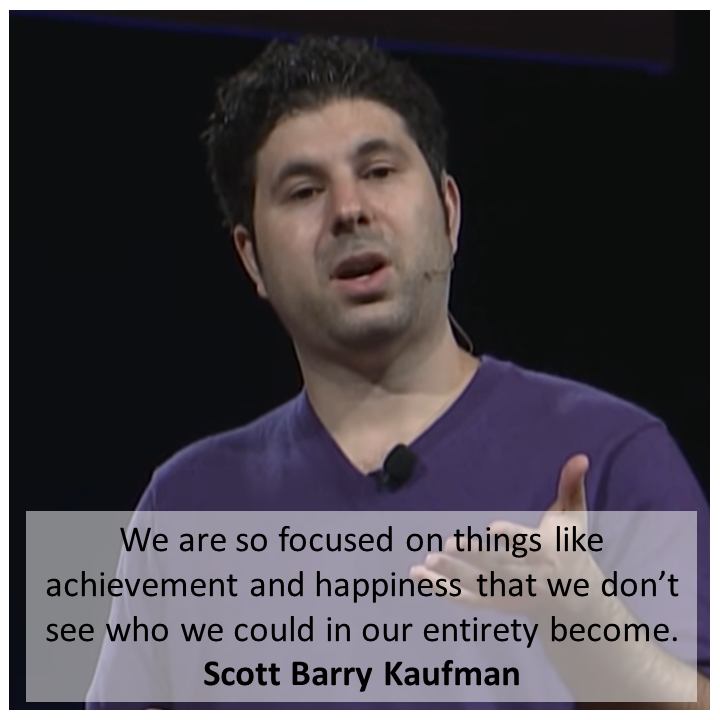
Conclusion
Life, our existence is always proven to be filled with paradoxes and contradictions. You will see a smiling beggar lying on the roadside – begging for the food of one time and you will also see a billionaire crying in his Lamborghini because he/she lost their loved ones. Different people will weigh out these events based on what type of life they were exposed to. Those who lacked happiness in their lives will prefer to be happy by trading all valuable objects they have, whereas those who never possessed basic things for survival will endure endless pain to get them. These types of paradoxical lives are the origins to a completely different world view and most importantly what motivates human beings.
What was lost through Maslow’s pyramid of hierarchy of needs came back into limelight due to modern theories in psychology like the Cybernetic Big Five Theory and Sail-Boat Model. They highlight a very important fact that stability and plasticity both are necessary for a person to become whole – a complete human being. Scott Barry Kaufmann also found out in his study that self-actualization was more strongly related to plasticity than the mere absence of stability. It shows how intrinsic motivation weighs heavier than the materialistic stability. It is a big concept to grasp but all of us are always passing through this experience but seldom are aware of that. You will realize that this is the theory which could also join the western and eastern concepts of enlightenment and self-transcendence.

P.S. – Iron Man’s character from MCU in every sense is the best pop-cultural representation of both the classical and modern ideas of the theory of motivation.

References and for further reading:
- A Theory of Human Motivation, A. H. Maslow (1943), Originally Published in Psychological Review, 50, 370-396
- Kaufman, Scott Barry. “Self-Actualizing People in the 21st Century: Integration With Contemporary Theory and Research on Personality and Well-Being.” Journal of Humanistic Psychology 63 (2018): 51 – 83.
- https://scottbarrykaufman.com/
- DeYoung, Colin G. “Cybernetic big five theory.” Journal of research in personality 56 (2015): 33-58.
- What Does It Mean to Be Self-Actualized in the 21st Century? – Beautiful Minds – by Scott Barry Kaufman in Scientific American
- The Untold Science of Self-Actualization by Marco Sander
- Featured image – A man looks at the painting Not to be Reproduced by René Magritte by Daniel Reinhardt



